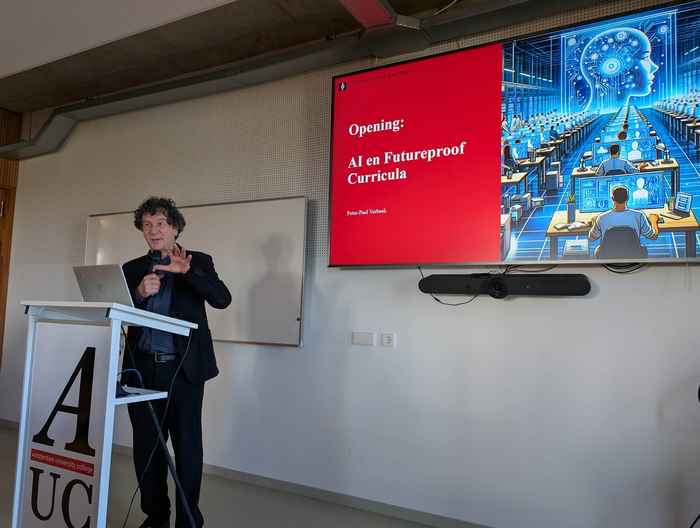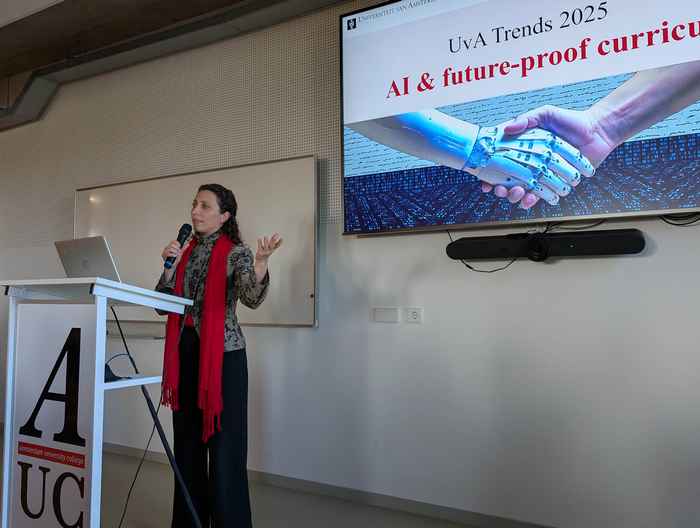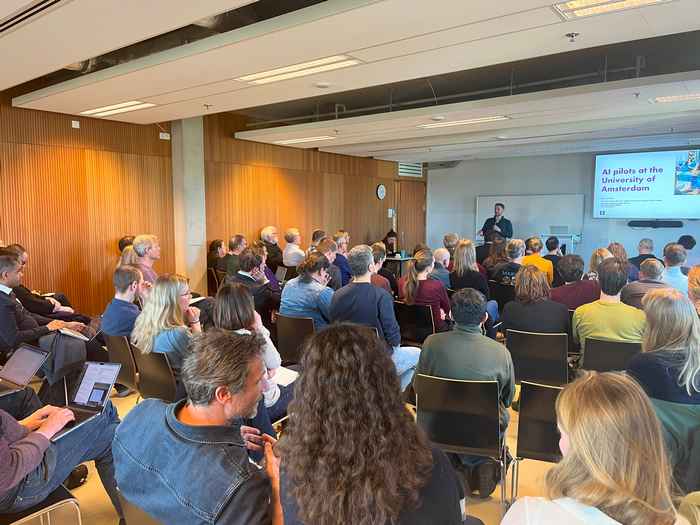'UvA Trends 2025: AI Literacy and Future-Proof Curricula' conference takes place at AUC
5 March 2025
Examining the future of AI in higher education
The event, moderated by Dr. Lela Mosemghvdlishvili and Dr. Ivar Kolvoort, brought together faculty members, educational policymakers and technology experts to discuss the growing role of AI in higher education. With recent recommendations from the VU-UvA task force on AI in education, participants examined what AI literacy entails and how digital learning environments can support the integration into academic programmes.
Rector Magnificus of the UvA, Peter-Paul Verbeek, opened the conference with a speech combining philosophy and technology. His address provided a foundation for deeper discussions on how AI is transforming teaching methods and assessment strategies at universities around the world.
Keynotes on AI literacy and adaptability
A highlight of the event were the keynote addresses by Felienne Hermans, Professor of Computer Science Education at VU Amsterdam, and Marjolijn Zwetsloot, Director of the U-TECH community. Hermans offered insights into the evolving concept of AI literacy and its implications for learning, while Zwetsloot explored how curricula must remain adaptable to meet future labour market demands. She pointed out that, according to the World Economic Forum, 65% of children entering primary school today will work in jobs that do not yet exist. This underscored the urgency of preparing students for a rapidly changing world that will require new skills.
Afternoon sessions & applied AI
The afternoon sessions shifted focus to practical applications of AI in education. Dr. Koen van Elsen from the Faculty of Science presented findings from AI pilot projects at the UvA, which assessed the use of ChatGPT in enhancing student learning. His presentation sparked discussions on how AI tools can support academic development while maintaining ethical and pedagogical integrity.
Dora Achourioti and others host breakout sessions
Breakout sessions provided an interactive space for attendees to dive deeper into specific challenges and opportunities. Dora Achourioti from AUC led a session on empowering teachers to redefine learning goals in response to generative AI, using AUC’s bottom-up approach as a case study. Rik Jager explored the potential of AI-powered tutor personas through the UvA AI Chat project, while Ilja Boor facilitated a hands-on session on interdisciplinary AI literacy and its integration into learning pathways.
Conclusions: agility and interdisciplinarity as key themes
Throughout the day, discussions continued to emphasise the need for agility in curriculum development, ensuring that students acquire the skills necessary for future success. As AI continues to shape academia and the job market, UvA Trends 2025 reinforced the importance of interdisciplinary collaboration in navigating these changes.
Amsterdam University College was proud to play a role in these vital conversations, reaffirming its commitment to fostering innovative and future-proof education.


